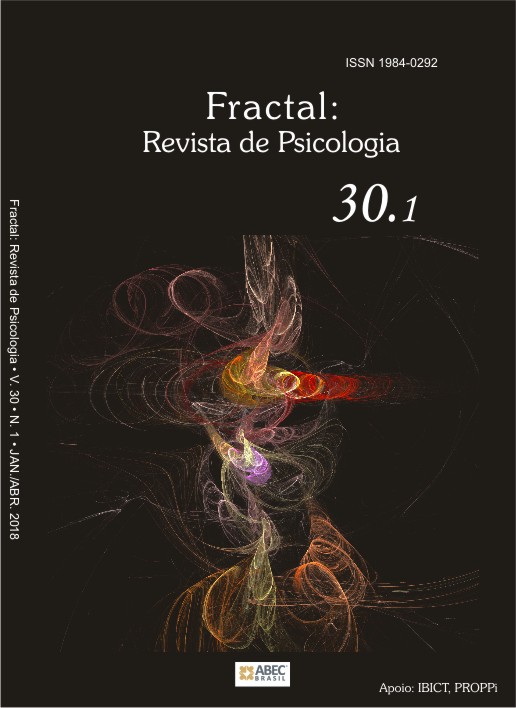National Program for Inclusion of Young People: possibilities and contributions from the perspective of the participating adolescents
DOI:
https://doi.org/10.22409/1984-0292/v30i1/1460Keywords:
Projovem Adolescente, youth, public policiesAbstract
This study aims to discuss the socio-educational process of the National Program for Inclusion of Young People, in the Projovem Adolescente (PJA) modality, using as clipping the perspective of the adolescents in the city of Natal / RN. Thus, we conducted three focus groups with participants adolescents. The results have treated about: the views of young people about adolescence and youth, participation in social and educational activities and the possibilities and PJA contributions in their life contexts. It was verified the importance of giving voice to young participants to provide a reflection on how youth policies have reached your audience, considering the issues and perspectives presented by young people as tools in the service of youth in building democratic and effective policies.
Downloads
References
ABRAMO, H. W. O uso das noções de adolescência e juventude no contexto brasileiro. In: FREITAS, M. V. (Org.). Juventude e adolescência no Brasil: referências conceituais. São Paulo: Ação Educativa, 2005, p. 20-35. Disponível em: <http://library.fes.de/pdf-files/bueros/brasilien/05623.pdf >. Acesso em: 15 set. 2017.
BRASIL. Presidência da República. Casa Civil. Subchefia para Assuntos Jurídicos. Lei nº 8.069, de 13 de julho de 1990. Dispõe sobre o Estatuto da Criança e do Adolescente e dá outras providências. 1990. Disponível em: <http://www.planalto.gov.br/ccivil_03/leis/L8069.htm>. Acesso em: 22 fev. 2015.
BRASIL. Ministério do Desenvolvimento Social e Combate à Fome. Adolescências, juventudes e socioeducativo: concepções e fundamentos. Brasília: MDS, 2009.
BRASIL. Presidência da República. Casa Civil. Subchefia para Assuntos Jurídicos. Lei nº 12.852, de 5 de agosto de 2013. Institui o Estatuto da Juventude e dispõe sobre os direitos dos jovens, os princípios e diretrizes das políticas públicas de juventude e o Sistema Nacional de Juventude - SINAJUVE. 2013. Disponível em: <http://www.planalto.gov.br/ccivil_03/_ato2011-2014/2013/lei/l12852.htm>. Acesso em: 23 fev. 2015.
CARRANO, R. C. P. Políticas públicas de juventude: desafios da prática. In: PAPA, F. C.; FREITAS, M. V. (Org.). Juventude em pauta: políticas públicas no Brasil. São Paulo: Peirópolis, 2011, v. 1, p. 237-250.
CARVALHO, F. X; NOMA, A. K. Políticas públicas para a juventude na perspectiva neoliberal: a centralidade da educação. Roteiro (Joaçaba), v. 36, n. 1, p. 167-186, jan./jun. 2011. Disponível em: <http://editora.unoesc.edu.br/index.php/roteiro/article/view/650/pdf_122>. Acesso em: 15 jul. 2017.
CHARMAZ, K. A Construção da Teoria Fundamentada: guia prático para análise qualitativa. Porto Alegre: Artmed, 2009.
COMISIÓN ECONÓMICA PARA AMÉRICA LATINA Y EL CARIBE; ORGANIZACIÓN IBEROAMERICANA DE JUVENTUD. La juventud en iberoamérica: tendencias y urgencias. Santiago: CEPAL / OIJ, 2004.
COHN, A. O modelo de proteção social no Brasil: qual o espaço da juventude? In: NOVAES, R.; VANNUCHI, P. (Org.). Juventude e sociedade: trabalho, educação, cultura e participação. São Paulo: Fundação Perseu Abramo, 2004. p. 130-159.
DAYRELL, J. O jovem como sujeito social. In: FÁVERO, O. et al. (Org.). Juventude e contemporaneidade. Brasília: UNESCO, MEC, ANPEd, 2007. p. 155-179. doi: http://dx.doi.org/10.1590/S1413-24782003000300004
FREITAS, M. V. de. (Org.). Juventude e adolescência no Brasil: referências conceituais. São Paulo: Ação Educativa, 2005.
JACCOUD, L.; HADJAB, P. D. E.; ROCHET, J. A política de assistência social e a juventude: um diálogo sobre a vulnerabilidade social? In: CASTRO, J. A.; AQUINO, L. M. C.; ANDRADE, C. C. (Org.). Juventude e políticas sociais no Brasil. Brasília: IPEA, 2009. p. 167-191.
LOPES, R. E.; SILVA, C. R.; MALFITANO, A. P. S. Adolescência e juventude de grupos populares urbanos no Brasil e as políticas públicas: apontamentos históricos. HISTEDBR On-line, Campinas, v. 23, p.114-130, 2006. Disponível em: <http://www.histedbr.fe.unicamp.br/revista/edicoes/23/art08_23.pdf >. Acesso em: 13 ago. 2017.
MARIZ, C.; FERNANDES, S. R. A.; BATISTA, R. Os universitários da favela. In: ZALUAR, A.; ALVITO, M. (Org.). Um século de favela. 3. ed. Rio de Janeiro: FGV, 2003. p. 323-337.
NOVAES, R. R. Juventude e sociedade: jogos de espelhos. Sentimentos, percepções e demandas por direitos e políticas públicas. Revista Sociologia Especial: Ciência e Vida, v. 1, n. 2, p. 6-15, 2007. Disponível em: <http://antropologia.com.br/arti/colab/a38-rnovaes.pdf>. Acesso em: 12 out. 2017.
QUIROGA, C. O (não-) trabalho: identidade juvenil construída pelo avesso. Praia Vermelha: estudos de política e teoria social. Rio de Janeiro, v. 1, n. 7, p. 36- 52, jan./jun. 2002.
SPOSITO, M. P. Os jovens no Brasil: desigualdades multiplicadas e novas demandas políticas. São Paulo: Ação Educativa, 2003.
TAROZZI, M. O que é a grounded theory: metodologia de pesquisa e de teoria fundamentada nos dados. Petrópolis, RJ: Vozes, 2011.
TRASSI, M. L.; MALVASSI, P. A. Violentamente pacíficos. São Paulo: Cortez, 2010.
TRINIDAD, A.; CARRERO, V.; SORIANO, R. Teoria Fundamentada “Grounded Theory”: la construcción de la teoria a través del análisis interpretacional. Madrid: Centro de investigacíones sociológicas, 2006.
YAMAMOTO, O. H.; OLIVEIRA, I. F. Política Social e Psicologia: uma trajetória de 25 anos. Psicologia: Teoria e Pesquisa, Brasília, v. 26, n. especial, p. 9-24, 2010. doi: http://dx.doi.org/10.1590/S0102-37722010000500002
Downloads
Published
How to Cite
Issue
Section
License
Authors publishing in this journal agree to the following terms:
- Authors retain copyright and grant the journal the right of first publication, with the work simultaneously licensed under the Creative Commons Attribution License allowing sharing of the work with acknowledgement of authorship of the work and initial publication in this journal.
- Authors are permitted to enter into additional contracts separately for non-exclusive distribution of the version of the work published in this journal (e.g., publishing in an institutional repository or as a book chapter), with acknowledgment of authorship and initial publication in this journal.

This work is licensed under a Creative Commons Attribution 4.0 International License.
To the extent possible under the law, Fractal: Journal of Psychology has waived all copyright and related rights to the Reference Lists in research articles. This work is published in: Brazil.
To the extent possible under law,Fractal: Journal of Psychology has waived all copyright and related or neighboring rights to Reference lists in research articles. This work is published from: Brazil.







